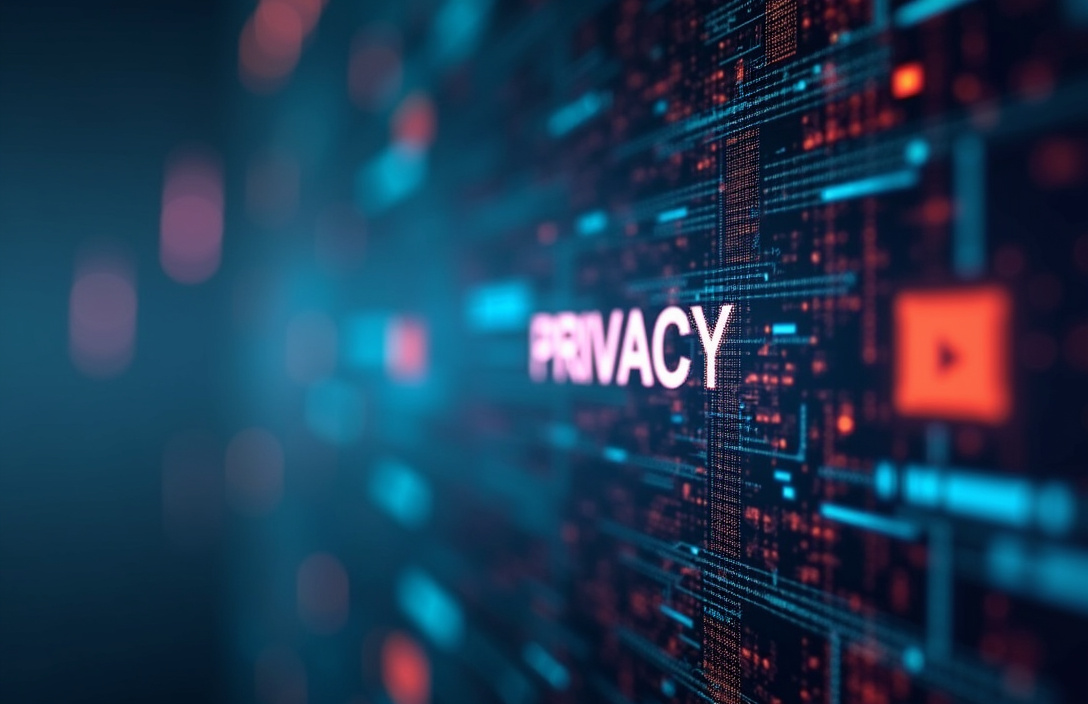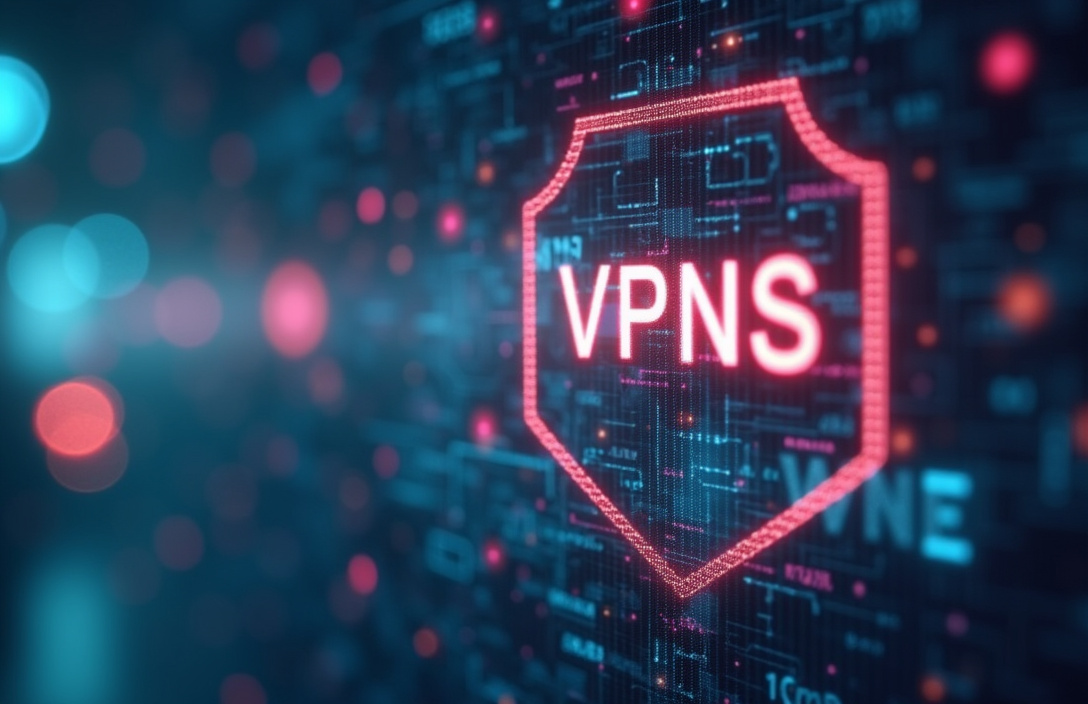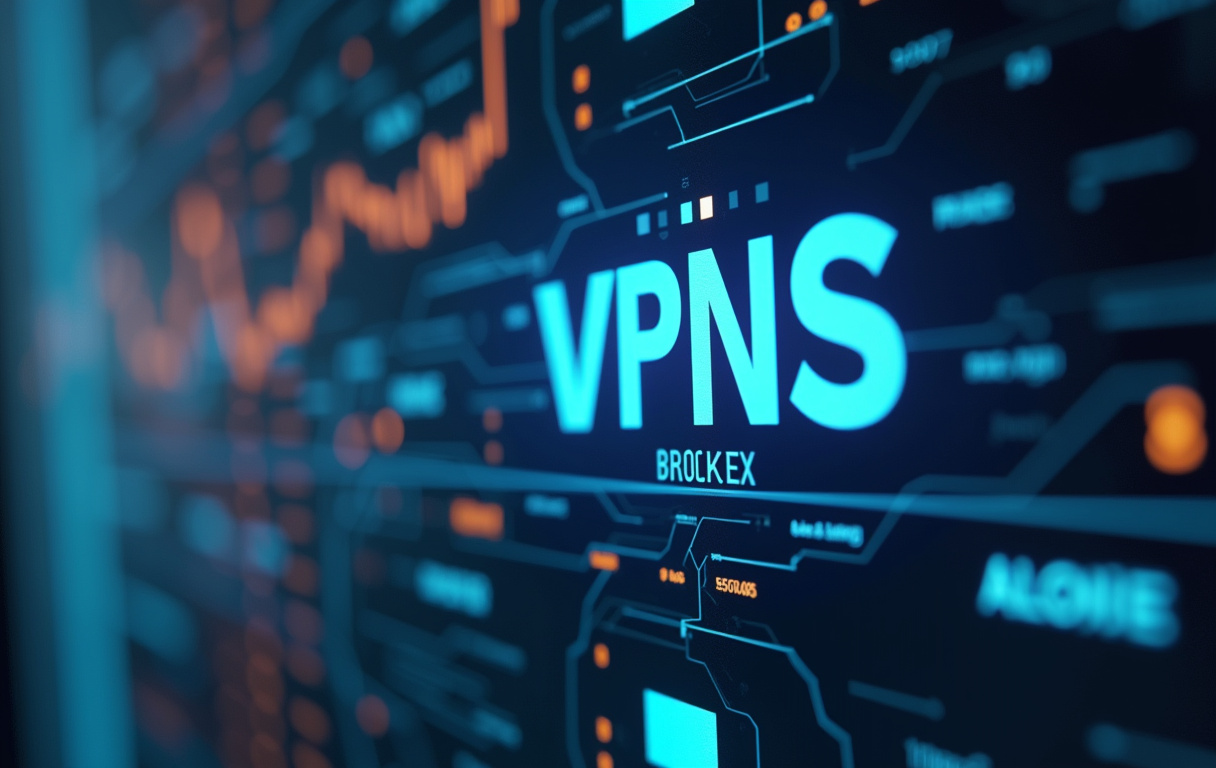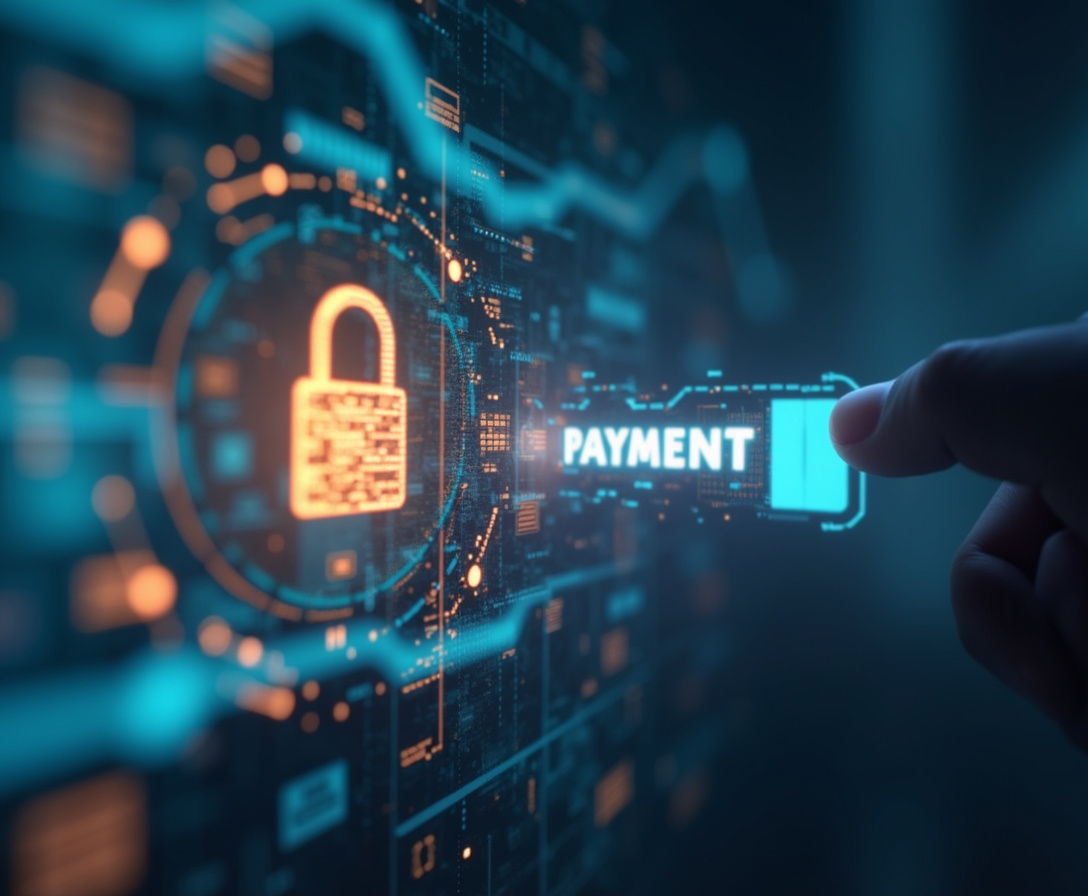VPNs for Chatbot Developers: Ensuring Data Privacy
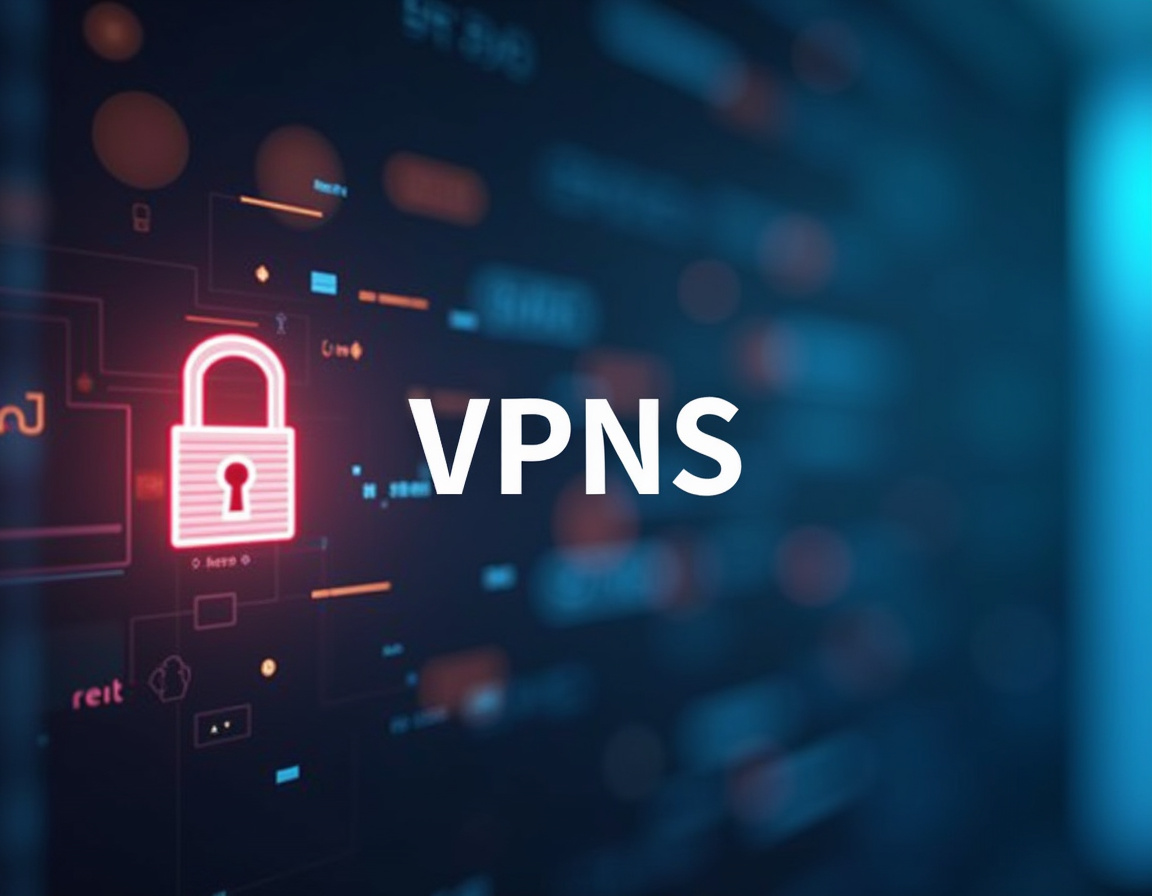
Table of Contents
VPNs for Chatbot Developers: Ensuring Data Privacy
In the burgeoning landscape of artificial intelligence, chatbots have emerged as indispensable tools for businesses across diverse sectors. From customer support and sales to information dissemination and personalized experiences, chatbots are revolutionizing how organizations interact with their audience. However, the increasing reliance on these AI-powered assistants has also raised critical concerns regarding data privacy and security.
This article delves into the vital role Virtual Private Networks (VPNs) play in safeguarding sensitive data exchanged with chatbots as well as the intellectual property of the developers creating them, it underscores the importance of integrating robust measures like VPNs to build trust and adhere to tightening privacy regulations. Chatbots, by their very nature, handle sensitive user information, including personal details, financial data, and confidential communications. This data is vulnerable to interception, manipulation, and unauthorized access, making it imperative for chatbot developers to prioritize data protection and implement robust security measures.
A Virtual Private Network (VPN) stands out as a crucial tool in the arsenal of chatbot developers, offering a means to safeguard user data, enhance communication security, and ensure message integrity. This comprehensive guide delves into the importance of VPNs for chatbot developers, exploring their functionalities, benefits, and best practices for implementation. Addressing data privacy concerns is not merely a matter of ethical responsibility; it is also a legal obligation.
Stringent data protection regulations, such as the General Data Protection Regulation (GDPR) and the California Consumer Privacy Act (CCPA), mandate that organizations implement appropriate technical and organizational measures to protect personal data. Failure to comply with these regulations can result in hefty fines, reputational damage, and loss of customer trust. Therefore, chatbot developers must proactively adopt privacy-enhancing technologies such as a chatbot VPN to mitigate risks and ensure compliance.
The integration of VPNs into chatbot development workflows addresses several key security vulnerabilities. Firstly, encrypts all internet traffic transmitted to and from the chatbot, preventing eavesdropping by malicious actors. This encryption is particularly crucial when chatbots are deployed on public Wi-Fi networks, which are notoriously insecure.
Imagine a scenario where a developer is working on a chatbot's customer service functionality from a coffee shop's Wi-Fi. Without a VPN, any data exchanged – including API keys, database credentials, and even snippets of user conversation data used for debugging – could be intercepted by someone monitoring the network. The VPN effectively creates a secure, encrypted tunnel, shielding this sensitive information.
Secondly, VPNs mask the user's IP address, making it difficult to track their online activities and location. This anonymity enhances user privacy and protects against targeted attacks. Consider a situation where a chatbot collects user demographics for personalization purposes.
Without a VPN, the chatbot's server could be vulnerable to IP-based attacks that reveal the location and potentially the identity of those users. This is particularly crucial when chatbots are used in sensitive contexts, such as healthcare or finance, where user anonymity is paramount. Thirdly, VPNs can be used to bypass geographical restrictions and access resources that are otherwise unavailable.
This is particularly useful for developers who need to test their chatbots in different regions or access data sources located in specific jurisdictions. It is crucial to have a during data testing. For example, a chatbot developer might need to test how their chatbot responds to different languages or cultural nuances in different countries or jurisdictions.
A VPN allows them to simulate a location in that region, enabling them to test the chatbot's functionality and compliance with local regulations. Furthermore, ethical considerations play a significant role in the adoption of VPNs for chatbot development. Users entrust chatbots with their personal information, expecting that it will be handled responsibly and securely.
By implementing VPNs, developers demonstrate their commitment to protecting user privacy and maintaining the confidentiality of their communications. This fosters trust and enhances the user experience. Think of how many customers might avoid using a companies chatbot if it gets out that any user has had their personal information stolen.
Therefore, understanding the crucial role of VPNs in securing chatbot applications is paramount for developers looking to protect data and ensure user trust. By implementing robust security measures, developers can build more robust and reliable chatbot solutions that meet the needs of their users and prioritize at every stage of the development process. The utilization of a not only ensures this protection but also provides them with a secure and consistent environment for continuous iteration and deployment of their chatbot solutions.
chatbot VPN
The core principle of a VPN lies in its ability to create a secure, encrypted tunnel between a user's device and a remote server. This tunnel effectively shields all internet traffic from prying eyes, preventing unauthorized access to sensitive data. In the context of chatbot development, this encryption is invaluable for protecting both the chatbot's code and the user data it handles.
When developers are working on the chatbot's code, they often need to access various online resources, such as code repositories, APIs, and databases. Without a , this traffic is vulnerable to interception, potentially exposing intellectual property and sensitive credentials. Imagine a scenario where a developer is pushing updates to a Git repository containing the chatbot's core logic.
Without a VPN, a malicious actor on the same network could potentially intercept those updates, injecting malicious code or stealing sensitive information. A VPN encrypts this traffic, ensuring that it remains confidential and secure. Similarly, when a chatbot interacts with users, it transmits and receives sensitive data, such as personal information, financial details, and confidential communications.
This *sensitive data* is vulnerable to interception by malicious actors, particularly when users are connecting to the chatbot through public Wi-Fi networks, therefore it is important . A encrypts this data, preventing eavesdropping and protecting user privacy. Consider a case where a chatbot is used to process customer orders, including credit card details.
Ensuring this information is obscured during transmission is critical. The use of a VPN enhances by providing an additional layer of protection against man-in-the-middle attacks. In such attacks, malicious actors intercept communication between a user and a server, potentially stealing sensitive information or manipulating the communication.
A encrypts the communication, making it difficult for attackers to intercept and decipher the data. This protection is particularly important for chatbots that handle sensitive user data, such as financial transactions or healthcare information. For example, if a user is interacting with a healthcare chatbot to schedule appointments and provide medical history, a man-in-the-middle attack could expose this sensitive information.
Similarly, a VPN ensures , another critical aspect of data security. It verifies that data transmitted between a user and a server is not altered or tampered with during transit. This is particularly crucial for chatbots that rely on accurate data for their functionality.
A uses cryptographic techniques to ensure , verifying that the data received is identical to the data that was sent. This prevents malicious actors from manipulating the data and ensures that the chatbot functions correctly, ensuring that responses generated by the chatbot are based on unadulterated information. Choosing the right requires careful consideration of several factors, particularly with protecting .
Firstly, the VPN should offer strong encryption protocols, such as AES-256, to ensure that data is adequately protected. Secondly, the VPN should have a strict no-logs policy, meaning that it does not store any logs of user activity. This is crucial for protecting user privacy.
Thirdly, the VPN should have a wide range of server locations, allowing developers to connect to servers in different regions and test their chatbots in various environments. Additionally, the VPN should have a fast and reliable connection speed to ensure that the chatbot functions smoothly. Finally, the VPN should be easy to use and have good customer support.
By carefully considering these factors, developers can choose a VPN that meets their specific needs and provides adequate protection for their chatbot and user data. The technical implementation of a VPN within the chatbot development environment involves setting up the VPN connection on the developer's machine and configuring the chatbot to use the VPN connection. This can typically be achieved by installing the VPN client on the developer's machine and connecting to a VPN server.
Once the VPN connection is established, all internet traffic from the developer's machine will be routed through the VPN tunnel. Developers who prioritize and understand that using a is not merely an option but a critical element of their workflow.
VPN for developers
Beyond the fundamental security benefits, VPNs offer chatbot developers a range of advantages that enhance their workflow, protect their intellectual property, and improve the overall quality of their chatbot applications. One key advantage is the ability to bypass geographical restrictions. Many online resources, such as APIs, datasets, and code repositories, are only available in certain regions.
A allows developers to connect to servers in those regions and access these resources as if they were physically located there. This is particularly useful for developers working on internationalized chatbots or chatbots that require access to region-specific data. For example, a developer creating a chatbot that provides localized weather forecasts might need to access weather APIs that are only available in specific countries.
A allows them to bypass these geographical restrictions and access the necessary data. Furthermore, VPNs can be used to test chatbots in different geographical locations. This is crucial for ensuring that the chatbot functions correctly in different languages, cultures, and regulatory environments.
By connecting to servers in different regions, developers can simulate the user experience in those regions and identify any issues that might arise. For instance, a developer might want to test how their chatbot handles different date and time formats or currency symbols in different countries. Making sure to have a in these use cases makes the process more fluent.
Moreover, VPNs provide an additional layer of protection against Distributed Denial-of-Service (DDoS) attacks. DDoS attacks are designed to overwhelm a server with traffic, making it unavailable to legitimate users. Chatbots, which rely on servers to process user requests, are particularly vulnerable to DDoS attacks.
A can help to mitigate the impact of DDoS attacks by masking the chatbot's IP address and distributing traffic across multiple servers. This makes it more difficult for attackers to target the chatbot's server directly. Protecting intellectual property is another crucial benefit of using a VPN for chatbot development.
Chatbot code and algorithms are valuable assets that can be stolen or copied by malicious actors. A helps to protect this intellectual property by encrypting the traffic between the developer's machine and the server, preventing unauthorized access to the code. In addition, VPNs can be used to create a secure development environment.
By connecting to a VPN server, developers can isolate their development environment from the public internet, reducing the risk of malware infections and other security breaches. Furthermore, ensuring and , VPNs can help developers comply with data protection regulations, securing the . Many data protection regulations, such as GDPR and CCPA, require organizations to implement appropriate technical and organizational measures to protect personal data.
A can help to meet these requirements by encrypting user data and masking IP addresses. By connecting to a VPN server located in a jurisdiction with strong data protection laws, developers can further enhance their compliance efforts. Choosing a VPN server involves more than simply selecting the fastest connection; it requires a good understanding of how the VPN provider handles user data, the security protocols it uses, and its compliance with international standards.
Integrating a into the Chatbot Development Lifecycle should go beyond simple tool selection; it should include careful planning, constant integration and detailed documentation. Here are some best practices that one could take into account: 1. Security Policy for VPN usage 2.
Train new employees in security best practices 3. Consistent VPN Client Configuration Furthermore, ensuring requires developers to embrace Secure Coding Practices by implementing secure coding techniques will not only ensure that the chatbot application is protected against vulnerabilities but it will make sure that all the data being handled by the app stays private. It’s all about making sure that the is the key to protecting customer information.
The VPN should also be integrated with Continuous Integration and Continuous Deployment (CI/CD) pipelines. This ensures that all code deployments are conducted through a secure, encrypted channel. It’s necessary to test the VPN configuration in a staging environment to ensure it works correctly before deploying to production.
Regular audits of VPN connections are important to confirm that traffic is correctly routed and encrypted. By integrating these practices into the chatbot development lifecycle will significantly enhance the application’s security posture.
VPN for developers
Selecting the appropriate VPN for chatbot development involves a multi-faceted evaluation that extends beyond mere speed and cost. The ideal must align with the specific security needs, compliance requirements, and development workflows of the chatbot project. A critical first step is assessing the encryption protocols offered by the VPN.
While AES-256 is widely considered the gold standard, developers should also understand the VPN's implementation of other security features like Perfect Forward Secrecy (PFS), which ensures that even if a key is compromised, past sessions remain secure. Closely related, a rigorous no-logs policy stands as a cornerstone of any privacy-focused VPN service. Developers need to carefully scrutinize the VPN provider's privacy policy, paying close attention to the types of data collected (if any), how long it's stored, and under what circumstances it might be shared.
Independent audits of the VPN's logging practices provide valuable third-party verification of these claims, significantly bolstering trust in the provider's commitment to protecting user privacy and ensure . A should ensure that no identifiable logs are maintained. Beyond security essentials, geographic diversity of server locations plays a significant role.
Developers who need to test their chatbots in different regions or access geographically restricted resources require a VPN with a broad global presence. This allows them to simulate user experiences from various locations and ensure compliance with local data protection regulations. However, geographic diversity should not come at the expense of speed and reliability.
A fast and stable connection is essential for seamless chatbot development and testing. Developers should look for VPNs with optimized server infrastructure and minimal latency, particularly when working with resource-intensive tasks like training machine learning models or processing large datasets. The must strike a pragmatic balance between geographic coverage, connection speed, and overall reliability.
Furthermore, the user interface and overall ease of use is something very important. The effort around configuring, connecting and troubleshooting should be smooth and easy. Consider the developer's familiarity with VPN technology when evaluating different options.
User-friendly clients with intuitive interfaces and clear instructions can simplify the process and reduce the learning curve. Some VPNs offer advanced features like split tunneling, which allows developers to route specific traffic through the VPN while leaving other traffic unaffected. This feature can be useful for selectively protecting sensitive data while maintaining optimal connection speeds for other tasks.
Integrating a as part of the workflow should make it easier not harder. Technical integration involves configuring the development environment and chatbot application to work seamlessly with the VPN. For local development, the simplest approach is to install the VPN client on the developer's machine and activate the connection whenever working on sensitive tasks.
This routes all traffic from the developer's machine through the VPN tunnel, protecting code, credentials, and other sensitive data. For chatbot deployments in cloud environments such as AWS, Azure, or Google Cloud, VPNs can be integrated to secure communication between different components of the chatbot infrastructure. This might involve setting up VPN gateways or site-to-site VPN connections to encrypt traffic between the chatbot's application servers, databases, and other services.
Containerization technologies such as Docker can further simplify VPN integration by allowing developers to package the VPN client and configuration along with the chatbot application in a single container. This ensures that the VPN is always active and properly configured, regardless of the deployment environment and guaranteeing . Regular monitoring and auditing of VPN connections are crucial for ensuring ongoing security and compliance.
Developers should implement logging and alerting mechanisms to detect and respond to any suspicious activity, such as unauthorized access attempts or unexpected changes in VPN configuration. Security Information and Event Management (SIEM) systems can be used to aggregate and analyze security logs from VPNs and other security tools, providing a centralized view of the organization's security posture. Regular penetration testing can help identify vulnerabilities in the VPN configuration or integration with other security systems.
These tests involve simulating real-world attacks to assess the effectiveness of the security controls and identify areas for improvement to maintain .
data privacy
The long-term success of VPN integration in chatbot development hinges on fostering a security-conscious culture within the development team, where is everyone's responsibility. This requires comprehensive training programs that educate developers on VPN usage best practices, potential security threats, and the importance of adhering to security policies. Training should cover topics such as choosing strong passwords, recognizing phishing attempts, and properly configuring VPN clients.
Developers should also be educated on the specific data protection regulations that apply to their chatbot project, such as GDPR or CCPA, and their obligations under those regulations. Regular security awareness campaigns can reinforce these concepts and keep security top of mind. These campaigns might involve simulated phishing attacks, security quizzes, or presentations on emerging threats.
Security champions within the development team can serve as advocates for security best practices and mentors for other developers. They can also help to identify and address security vulnerabilities in the chatbot application. They will also be able to implement a correctly ensuring that any data or gets compromised.
Beyond training, establishing clear security policies is essential for guiding developer behavior and ensuring consistent VPN usage. These policies should outline the circumstances under which VPNs are required, the approved VPN clients and configurations, and the procedures for reporting security incidents. Enforcement mechanisms, such as automated checks and manual reviews, can help to ensure that developers are adhering to these policies.
For example, automated checks can verify that VPN clients are properly configured and up-to-date, while code reviews can identify potential security vulnerabilities in the chatbot application. Security metrics can be used to measure the effectiveness of the security program and identify areas for improvement. These metrics might include the number of security incidents reported, the percentage of developers who have completed security training, and the time it takes to resolve security vulnerabilities.
Furthermore, it's essential to continuously monitor the threat landscape and adapt security practices accordingly, making sure you have a . This involves staying informed about new vulnerabilities, attack techniques, and data protection regulations. Threat intelligence feeds can provide valuable insights into emerging threats and help developers prioritize their security efforts.
Regular security audits and penetration testing can help identify weaknesses in the security posture of the chatbot development environment and provide recommendations for improvement. It must also be taken into account that you should establish clear protocols for incident response, including steps for identifying, containing, and remediating security incidents. Developers should be trained on these protocols and know how to report security incidents.
In conclusion, VPNs are indispensable tools for chatbot developers who prioritize security. By encrypting traffic, masking IP addresses, and providing access to geographically restricted resources, VPNs enhance , protect intellectual property, and improve the overall quality of chatbot. However, selecting and implementing a is only part of the equation.
A comprehensive approach to security requires fostering a security-conscious culture, establishing clear security policies, and continuously monitoring the threat landscape. By taking these steps, chatbot developers can build more secure, reliable, and trustworthy applications that protect user data and comply with data protection regulations and ensuring . This comprehensive approach enables developers to meet the expectations of their users fostering trust and confidence in the digital age.
Integrating a into the workflow of the developers should be an essential step to protect not only the customers information but the companies intellectual property. The development of future chatbots will need to have all of these recommendations in mind from start, to make sure that is one of the most important things when dealing with new technology.
Stay Updated
Get the latest VPN news, tips, and exclusive deals to your inbox.
